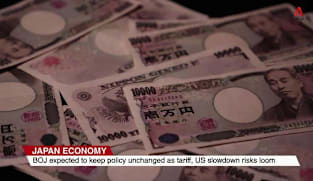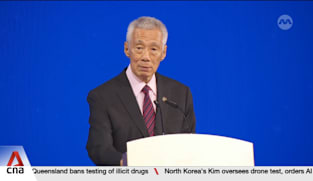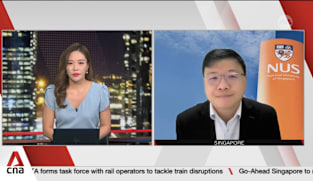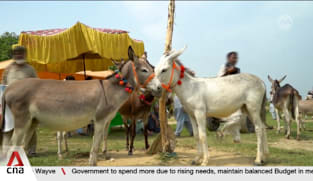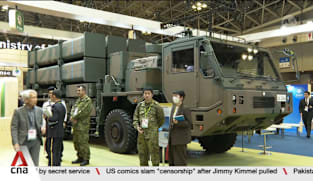Chee Hong Tat on Transport Sector (Critical Firms) Bill
Singapore is making its essential transport services more resilient against possible future disruptions, said Transport Minister Chee Hong Tat. It is preparing for possible extreme scenarios that may happen in future, such as the risk of malicious actors gaining control and adversely influencing its key transport entities and jeopardising the provision of essential transport services, he said. Mr Chee, who outlined the key provisions of the Transport Sector (Critical Firms) Bill in Parliament on Wednesday (May 8), said the Government is taking a sector-specific, calibrated and targeted approach covering air, land and sea. He said this would better allow Singapore to customise the regulatory oversight needed for its transport ecosystem and balance these objectives with the commercial and business impact on transport entities and their investors. Under the Bill, the Bus Services Industry Act, Civil Aviation Authority of Singapore Act, Maritime and Port Authority of Singapore Act and Rapid Transit Systems Act will continue to be administered by the relevant authorities. These authorities will also be responsible for designating relevant entities under the framework. The Bill will regulate entities within the transport sector that are involved in the provision of essential transport services in the air, land or sea transport sectors, and are strategically important within the sector. For land, public bus and rail services will be included, among other things. For aviation, they would cover, among other things, airport and ground handling operations, as well as passenger and cargo air services at Changi Airport. For maritime, among other things, port and marine services and facilities will be included. The regulatory authorities will have the power to designate entities. The Government intends to designate the relevant firms by the end of this year. The Bill will introduce legislative levers across the four Acts in three aspects. The first relates to ownership controls - to allow the relevant authorities to have oversight of significant changes in effective control of designated entities. The second set of controls pertains to the appointment of management by designated entities. These controls allow the relevant authorities to be kept apprised of any changes to the key personnel responsible for the management of critical transport firms and operations affecting the continued provision of the essential transport service. The third aspect involves operations and resourcing to ensure that companies are equipped and able to operate their services under all circumstances. Designated entities should notify their respective authorities as and when there are material developments or events. To help companies to comply with these requirements, the relevant authorities will issue a set of advisory guidelines after the Bill is approved by Parliament and comes into force. The Bill also has provisions for step-in powers via a Special Administration Order to cover designated operating entities and licensees across the air, land and sea transport sectors. This is to safeguard service continuity in extreme scenarios and unlikely events. Step-in powers will be exercised as a last resort. “Singapore’s connectivity is one of our greatest assets and something we must continue to safeguard carefully to protect the interests of Singapore and Singaporeans," said Mr Chee.
Singapore is making its essential transport services more resilient against possible future disruptions, said Transport Minister Chee Hong Tat. It is preparing for possible extreme scenarios that may happen in future, such as the risk of malicious actors gaining control and adversely influencing its key transport entities and jeopardising the provision of essential transport services, he said. Mr Chee, who outlined the key provisions of the Transport Sector (Critical Firms) Bill in Parliament on Wednesday (May 8), said the Government is taking a sector-specific, calibrated and targeted approach covering air, land and sea. He said this would better allow Singapore to customise the regulatory oversight needed for its transport ecosystem and balance these objectives with the commercial and business impact on transport entities and their investors. Under the Bill, the Bus Services Industry Act, Civil Aviation Authority of Singapore Act, Maritime and Port Authority of Singapore Act and Rapid Transit Systems Act will continue to be administered by the relevant authorities. These authorities will also be responsible for designating relevant entities under the framework. The Bill will regulate entities within the transport sector that are involved in the provision of essential transport services in the air, land or sea transport sectors, and are strategically important within the sector. For land, public bus and rail services will be included, among other things. For aviation, they would cover, among other things, airport and ground handling operations, as well as passenger and cargo air services at Changi Airport. For maritime, among other things, port and marine services and facilities will be included. The regulatory authorities will have the power to designate entities. The Government intends to designate the relevant firms by the end of this year. The Bill will introduce legislative levers across the four Acts in three aspects. The first relates to ownership controls - to allow the relevant authorities to have oversight of significant changes in effective control of designated entities. The second set of controls pertains to the appointment of management by designated entities. These controls allow the relevant authorities to be kept apprised of any changes to the key personnel responsible for the management of critical transport firms and operations affecting the continued provision of the essential transport service. The third aspect involves operations and resourcing to ensure that companies are equipped and able to operate their services under all circumstances. Designated entities should notify their respective authorities as and when there are material developments or events. To help companies to comply with these requirements, the relevant authorities will issue a set of advisory guidelines after the Bill is approved by Parliament and comes into force. The Bill also has provisions for step-in powers via a Special Administration Order to cover designated operating entities and licensees across the air, land and sea transport sectors. This is to safeguard service continuity in extreme scenarios and unlikely events. Step-in powers will be exercised as a last resort. “Singapore’s connectivity is one of our greatest assets and something we must continue to safeguard carefully to protect the interests of Singapore and Singaporeans," said Mr Chee.








